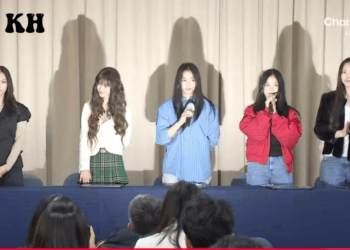South Korea’s Fair Trade Commission announced penalties against the two e-game operators, PUBG: Battlegrounds (operated by Krafton) and Starseed: Asnia Trigger (operated by Com2uS), for misleading NewJeans fans about the possibility of receiving paid random items in the games.
On June 16, the Fair Trade Commission announced that it had decided to impose an administrative fine of 2.5 million Korean won (approximately $1,800) on each of the two companies and order them to submit re-infringement prevention plans within 30 days for violating the e-commerce law.
Between March and June of last year, Krafton was accused of lying about the percentage of random items in its Battlegrounds game. It sold items that would transform characters into the likenesses of the girl group NewJeans through a “random item” system. It claimed that users would be guaranteed to obtain the item on the fifth attempt, even if they failed the first four attempts, while the actual chance of obtaining it per attempt was no more than 9%.
The company was also accused of lying about another random item called “Crafting,” which allowed users to swap old items for new ones. It claimed that the odds of obtaining some items ranged between 0.1414% and 0.7576%, while the actual chance of obtaining some items was actually 0%.
Com2uS was also accused of misleading users in its Starseed game between March and May of last year. It advertised that the overall chance of improving the abilities of some items was 24%, while the actual chance was only 24% for one of the three types of items the user obtained, while the other two types provided no actual improvement (0%).
The Fair Trade Commission (FTC) has required the two companies to submit specific plans to prevent the recurrence of such misleading actions within 30 days.
Regarding compensation
Krafton refunded more than 380,000 players a total of 1.1 billion Korean won (approximately $790,000) and awarded additional compensation in the form of in-game cash credits worth an estimated 9.8 billion won (approximately $7 million).
Com2uS also awarded in-game cash compensation of 200,000 won (approximately $145) to each of 1.55 million players, regardless of whether they purchased the items.
It is worth noting that the FTC has investigated six gaming companies based on consumer reports and self-monitoring since the new amendment to the Gaming Industry Act took effect in March of last year, which mandates mandatory disclosure of information on the probability of random items in games.







